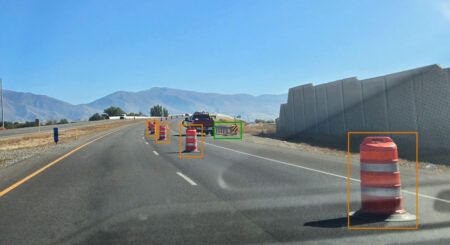Siemens ITS has been awarded a major project to develop the software for the implementation of London’s Ultra Low Emission Zone (ULEZ), with the scheme due to go live on a 24/7/365 basis from April 2019.
As well as helping the city to meet its statutory UK and European air quality requirements, Transport for London (TfL) hopes that the introduction of the new ULEZ will reduce exhaust nitrogen oxide (NOx) and particulate matter (PM) emissions, making central London a safer and more pleasant place to live, work and visit.
It is expected that the positive effects will be especially beneficial to younger and older people and those that have respiratory problems, as well as residents of high pollution areas.
A significant proportion of traffic moving in the ULEZ will be from outside the zone, so the benefits of cleaner, greener vehicles in the form of reduced emissions will be delivered across Greater London, even to areas not in the zone.
Over the next 12 months, Siemens will develop the software to enable the enforcement and management of the ULEZ.
The company is already responsible for the enforcement system for the Congestion Charging (CC) scheme in London – the world’s largest such scheme – which has involved the design, build, operation and maintenance of the system for over 10 years.
The CC system uses advanced, industry-leading, multi-lane free-flow tolling technology that extends throughout London, with the highest level of performance and reliability (greater than 99.9%).
During this time, over two billion vehicle detection records have been processed, all with industry-leading security and transactional integrity, resulting in the highest performing systems from a driver compliance perspective.
“As cities continue with their aspirations to improve air quality, increasingly they need to revert to the implementation of a Clean Air Zone (CAZ) or Low Emission Zones (LEZ),” explained Matthew Vincent, sales and marketing director for Siemens ITS.
“We are proud that our technology has been chosen in London, and we look forward to working with other cities and regions in developing their own implementation of scalable LEZ/CAZ solutions that support their local needs.”
Paul Cowperthwaite, TfL’s general manager for road user charging, commented, “By April 2019, all vehicles, barring some exemptions, will need to meet exhaust emission standards or pay a daily charge when traveling in central London.
“We are working to ensure the necessary infrastructure is in place by 2019 and assigning projects to contractors such as Siemens will ensure we meet this deadline.”




